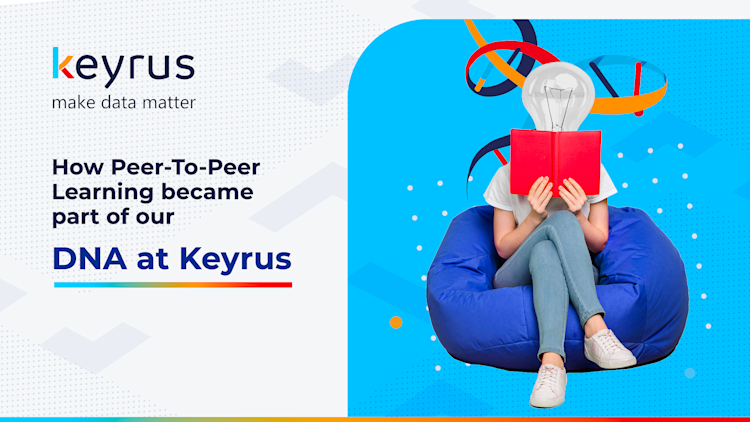Think of all the knowledgeable and capable employees you hire and interact with on a daily basis. Now think about how much expertise their peers could gain if this knowledge was shared.
It’s easier for us to learn new skills in an environment that includes the four key stages of the ‘Learning Loop’.
Peer to peer strategies cover all these stages, making for well-rounded and effective training.
Here are some of the benefits you can expect to see in a successful peer to peer organization:
It encourages connectivity and collaboration.
It can help to boost employee morale and well-being.
It can increase engagement.
It can improve retention & productivity.
It helps to ensure new employees feel comfortable.
It provides a safe space to ask questions.
It reinforces employees’ existing knowledge.
At Keyrus MEA we made Peer-To-Peer Learning part of our Learning strategy, and this what our people are saying about it in their own words...
“JUG/KUG at Keyrus started more than a year ago in chat conversion and the concept grew-up to become a Peer-To-Peer knowledge community where we aim to populate Java/Kotlin related expertise among keyrus team members. It is a meeting place for Java/Kotlin developers to get information, share resources and solutions, increase networking, expand Java/Kotlin Technology expertise, and have fun!”
Slim, Digital Manager
“The peer-to-peer sessions we hold at Keyrus are very self-directed in a way that it pushes us to search for information and want to deep dive into certain topics right after the session. It is a great forum for junior and tenured team members to share knowledge and collaborate.
We document all our learning from those sessions in a knowledge base and it is super helpful to find a solution to a problem or a piece of code while working on real customer case, it was a life savior for me on several occasions.”
Olfa, Digital Consultant
“I had the chance to facilitate a Java/Kotlin session and it was a first-time experience in terms of workshop delivery!
Being in this posture helped learn new skills like; content design, classroom and time management, public speaking…. I also learned that being a facilitator is not an easy job! I faced challenges like how to engage the learners and how to ask the right questions to keep my peers connected in a remote learning environment. I was able to learn from those challenges and transformed them into opportunities in my next sessions.
I spent considerable time in preparing and searching for information to be able to deliver a great learning experience to my peers
These sessions are definitely a win-win game, since we grow as an individual and we help other to grow too!”
Eya, Digital consultant
